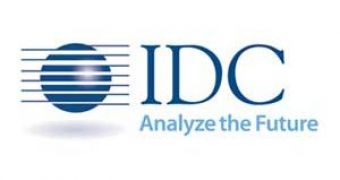That overall PC sales dropped in the first quarter is not that big a surprise, knowing the Sandy Bridge issue, but it looks like a certain pair of PC vendors managed to thrive while top players slid.
The first quarter of the year was definitely not a friendly time for the overall PC industry, what with the way all sales of Sandy Bridge machines were halted for several weeks.
With notebook and mainboard shipments falling sharply, the PC market was unable to grow, sliding, instead, by 3.2% compared to the same three-month period of 2010,. according to IDC.
Granted, more reasons than just this one were given, and this extends to more than media tablets.
“While it's tempting to blame the decline completely on the growth of media tablets, we believe other factors, including extended PC lifetimes and the lack of compelling new PC experiences, played equally significant roles,” said Bob O'Donnell, program vice president, Clients and Displays.
Oddly enough, Lenovo and Toshiba managed to boost their overall sales anyway, and their shares grew as well.
Toshiba, for instance, delivered 4.8 million (6% of the global market), while Lenovo shipped 8.1 million (10.1% share).
What this means is that Lenovo actually got closer to taking third place away from Acer, whose own sales were of 9 million (11.2% share).
Meanwhile, top 1 and 2 HP and Dell also suffered a decline, to 15.1 million (18.9%) and 10.2 million (12.8%), respectively.
"While the consequences of events in the Middle East and Japan remain unclear, these will surely be factors that will influence short term market performance for 2011," said Jay Chou, senior research analyst with IDC's Worldwide Quarterly PC Tracker.
"Long-term success will depend on hardware manufacturers being able to articulate a message that is beyond simple hardware specifications. 'Good-enough computing' has become a firm reality, exemplified first by Mini Notebooks and now Media Tablets.”

 14 DAY TRIAL //
14 DAY TRIAL //